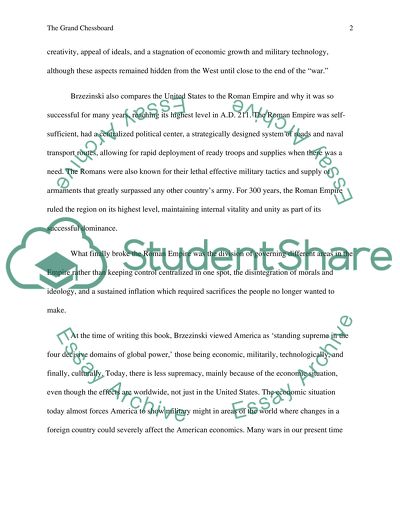Cite this document
(“The Grand Chessboard Assignment Example | Topics and Well Written Essays - 2000 words”, n.d.)
Retrieved from https://studentshare.org/military/1395300-the-grand-chessboard
Retrieved from https://studentshare.org/military/1395300-the-grand-chessboard
(The Grand Chessboard Assignment Example | Topics and Well Written Essays - 2000 Words)
https://studentshare.org/military/1395300-the-grand-chessboard.
https://studentshare.org/military/1395300-the-grand-chessboard.
“The Grand Chessboard Assignment Example | Topics and Well Written Essays - 2000 Words”, n.d. https://studentshare.org/military/1395300-the-grand-chessboard.


